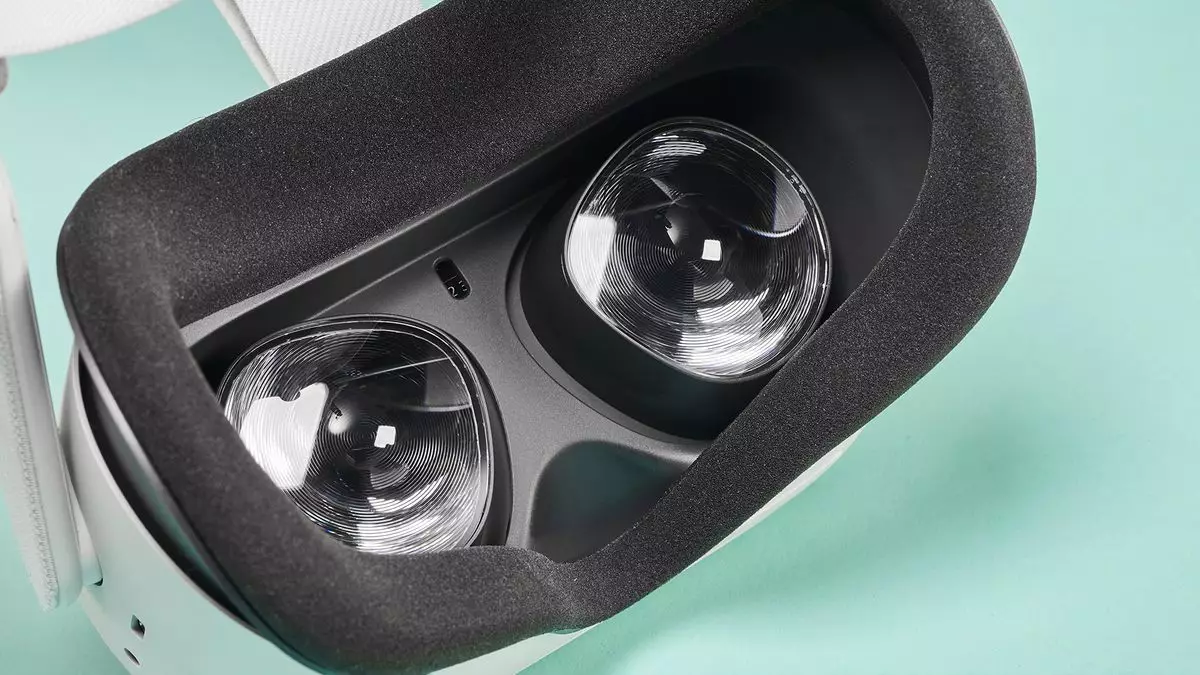Meta’s highly anticipated high-end VR headset, the Quest Pro 2, is now in doubt as reports surface regarding a new affordable mixed-reality headset from the company. According to The Information (via UploadVR), Meta has decided to scrap the plans for the premium Quest Pro 2 in favor of a super-light, cost-effective headset codenamed Puffin. This shift in focus has raised eyebrows in the tech community, prompting questions about the future direction of Meta’s VR offerings.
The Puffin: A Glimpse of Innovation?
Described as resembling a bulky pair of spectacles, the Puffin headset weighs in at less than 110 grams, making it significantly lighter than traditional VR gadgets like the Meta Quest 3. Despite its lightweight design, the Puffin reportedly boasts pancake lenses and passthrough functionality with cameras, thanks to an innovative approach of separating the battery and processing hardware into an external tethered “puck.” This unconventional setup aims to enhance user experience by minimizing the weight of the headset, paving the way for a more comfortable and immersive VR experience.
In addition to its unique design, the Puffin is said to feature a gesture-based control and input system similar to that of the Apple Vision Pro, eliminating the need for physical controllers. This decision aligns with Meta’s vision of enhancing user interaction and freedom of movement within the virtual space. The incorporation of motion sensors further elevates the Puffin’s appeal, showcasing Meta’s commitment to pushing the boundaries of VR technology.
A Departure from Traditional VR
While the Puffin is classified as a mixed-reality headset rather than a pure VR product, its unconventional features and design raise questions about Meta’s strategic direction. With Meta’s CEO, Mark Zuckerberg, previously criticizing the cable and external power pack of the Apple Vision Pro, the decision to introduce a similar setup with the Puffin may seem contradictory. However, by positioning the Puffin as a mixed reality device, Meta could potentially justify the use of cables while maintaining consistency with Zuckerberg’s stance on VR user experience.
Although the Puffin isn’t expected to launch until 2027, the concept of lighter and more ergonomic headsets holds promise for the future of VR, AR, and mixed reality technologies. The quest for mainstream adoption hinges on the ability to deliver seamless and comfortable user experiences, and the Puffin’s innovative approach could be a step in the right direction. As the tech landscape evolves, the integration of VR and AR into everyday devices, such as glasses or even implants, may pave the way for more compelling and immersive virtual experiences.
Meta’s rumored Puffin mixed-reality headset presents a mix of excitement and skepticism within the tech community. While the innovative design and features showcase Meta’s commitment to pushing the boundaries of VR technology, questions linger about the practicality and user acceptance of the proposed headset. As the industry awaits further developments, only time will tell if the Puffin will be a game-changer in the world of virtual reality or just another passing gimmick.

